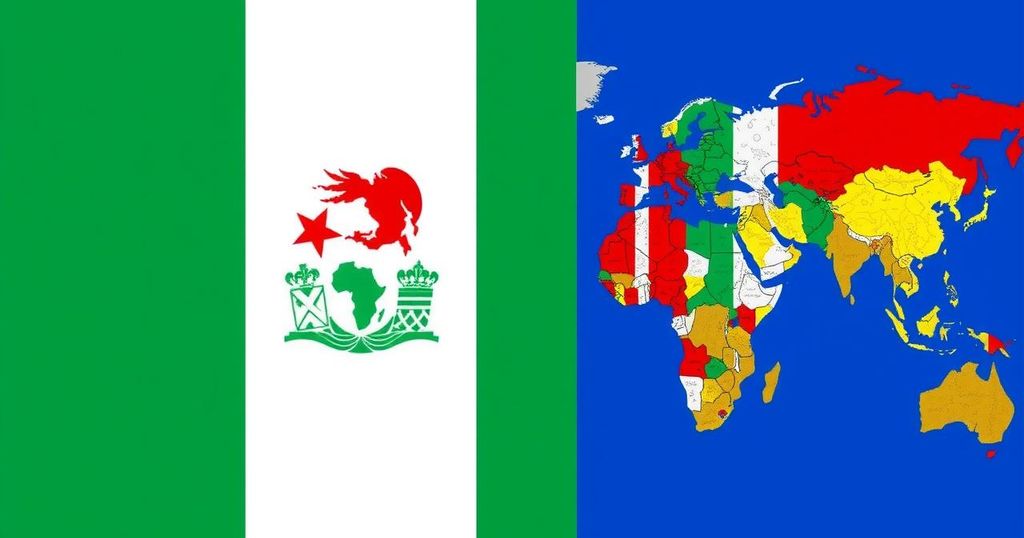Nigeria and Twelve Other Nations Join BRICS as Partner Countries
Nigeria and twelve other countries have been accepted as partner nations in the BRICS initiative, with the aim of eventually achieving full membership, although no new full members will be added in 2024. The BRICS group consists of major economies aiming for increased collaboration and influence in global affairs.
As the BRICS summit concluded in Russia, Nigeria, along with twelve other countries, has been welcomed as a partner nation in the BRICS initiative. A total of thirteen new nations are now working to engage with the group as partners. However, it has been decided by BRICS not to accept any additional countries as full members of the alliance in 2024. The aspiration remains for these thirteen nations to potentially attain full membership in the future. The current full members of BRICS include Brazil, Russia, India, China, South Africa, the United Arab Emirates, Iran, Egypt, and Ethiopia. The official partner countries now encompass Algeria, Belarus, Bolivia, Cuba, Indonesia, Kazakhstan, Malaysia, Nigeria, Thailand, Turkey, Uganda, Uzbekistan, and Vietnam. The term “BRIC” was originally coined in 2021 by economist Jim O’Neil from Goldman Sachs, referring to Brazil, Russia, India, and China, which were identified as large, middle-income countries with rapidly growing economies that were projected to become leading global economies by 2050. The Bric group was established in 2006, and South Africa joined in 2010, officially expanding it to BRICS.
The BRICS grouping, originally comprising Brazil, Russia, India, and China, was established to foster economic cooperation and recognition among these emerging economies. In 2010, South Africa joined the coalition, marking its expansion to BRICS. Over the years, BRICS has aimed to provide a platform for collaboration among its members, significantly in economic and political arenas. The recent inclusion of Nigeria and twelve other countries signifies a strategic move toward broader partnership and influence by BRICS in the global economy and geopolitics.
In conclusion, the BRICS summit has resulted in the inclusion of Nigeria and twelve other nations as partner countries, aiming for a future where these nations may achieve full alliance membership. This decision reflects the group’s intent to expand its influence, while adaptability in membership reflects the group’s evolving strategy in the context of global economic dynamics.
Original Source: www.bbc.com




Post Comment